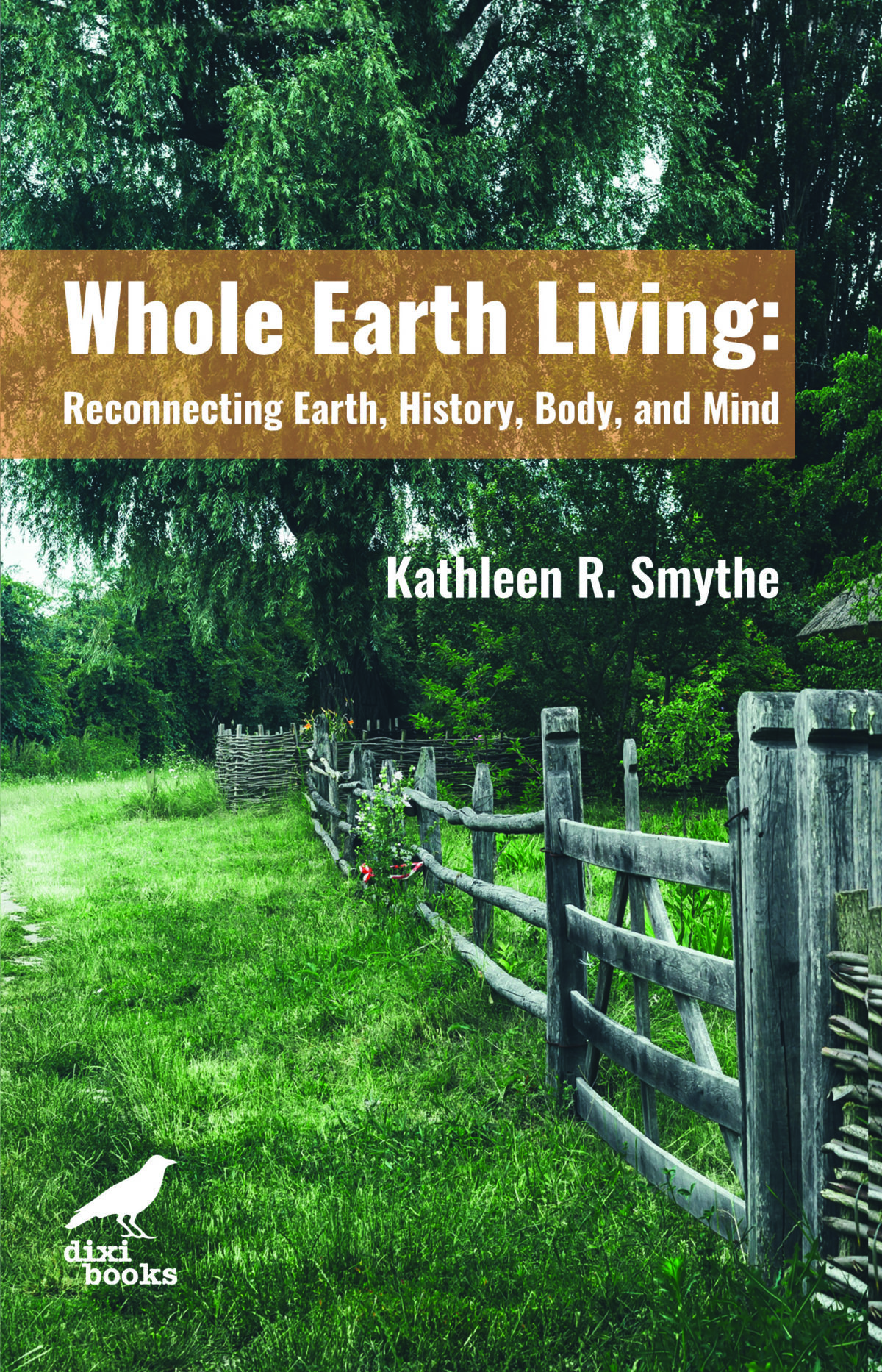Kathleen Smythe’s Whole Earth Living: Reconnecting Earth, History, Body, and Mind is a much-needed book at this major junction point in human history. Her hopes are no less bold than, first, restoring the value that has been lost from human lives in a cloud of technological gadgetry and, secondly, achieving a robust mode of sustainability that embraces pan-species flourishing. It is heartening to see such thought given to this last aspect – namely, pan-species flourishing – which seems to be far from universal in present sustainability discourse.
Smythe is a history professor and chair of the History Department at Xavier University in Cincinnati, Ohio, and, in this timely book, she brings her rich historical understanding of agriculture, technology, and politics to explore how humanity has lost its way. Beyond this critique of modern humanity’s rocky path, she presents a vision for what meaningful work and meaningful lives could and should look like, now and in the future, with a style that is at once highly readable and persuasive. “We need to look differently at who humans were, and who we are now,” Smythe writes, cutting to the nub of the issue. “Then we might be able to achieve the cultural change that could overturn the dominant understanding of our relationship to nature.”
While the book draws on the authors’ experience of living in the United States, as well as Africa, the issues discussed, and their potential ramifications, will be relevant to any citizen of a country whose government is currently paving an unsustainable path into a hostile future. And, as Smythe argues, changes are possible. “Such changes are not cumbersome, depressing, or impossible,” she writes. Instead, they are “realistic, hope-filled, and a more honest reflection of where we have come from and who we might be as a species.”
My only criticism of the work – and it is not so much a criticism as an expression of personal taste – is that I would like to have seen even more space given over to the second main part of the book, which covers Smythe’s vision for a new sustainability paradigm. There is much wisdom in the three chapters that make up this section, and I would like to have read even more of the author’s ideas here. To quote just one example of the important observations made in the section on the new sustainability paradigm:
“Self-sufficiency, in contrast, is the opposite of poverty. It puts us in touch with the limits of human production and consumption, and removes us from complete dependence on the money economy. It diminishes our sense of helplessness. The market of the industrial city and the megalopolis promote what consumers do not have, while self-reliance allows us to discover what we actually need for happiness and fulfilment.”
To sum up, Smythe’s excellent book holds the potential to help ensure humanity takes the right path at the junction point at which it currently stands.

